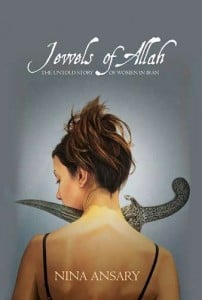When I attempted entering “Islamic erotica” in a search engine, I was not sure what to expect. A few weeks before doing that, I had stumbled upon the genre while reading Afrocentric Muslimah’s blog post on the need for Muslim women to embrace their sexuality. Curious to know more about Islamic erotica, I decided to search for more on the topic. I have since discovered that there are various works of art and/or books grouped under the Islamic (or Muslim) erotica tag. This range from the classic One Thousand and One Nights to Max Emadi’s “Islamic erotica” paintings and the mysterious Nedjma’s book on the sexual awakening of an Arab woman. Apparently Islamic erotica was rising in 2010; however, none of what I mentioned above are like the recent works of anonymous writer Papatia Feauxzar, a woman who writes Islamic erotica for Muslim women.
As a teenager growing up in Nigeria, the limit of my sexual education was “don’t have sex before marriage”; this was something that my all my girlfriends, regardless of religion, were taught. I am not married but I have sneaked into several pre-wedding nights where, in my culture, advice is given to young brides before they finally leave for their husband’s house. The advising aunties will usually say something along the lines of “submit to your husband” or “a woman should not deny her husband conjugal rights.” The only times I have had frank discussions about sex and sexuality have been with people my age, and this happens rarely. I have found that sex is regarded as taboo not only among Nigerians but doubly among Muslims. Afrocentric Muslimah likens the Muslim attitude towards sex with drug use; it is a topic that must be hidden, even though it is enjoyed and viewed with shame. This despite the fact that Prophet Muhammad (PBUH) was apparently open when it came to the subject of sex and sexuality. The Islamic erotica written by Papatia Feauxzar aims to fill in this lack of discourse through her books that address the sex and sexuality of Muslim women forthrightly. But can literature targeting Muslim women be erotic? This is one question I never thought I would ask or consider.
![The cover of Feauxzar's novel Between Sisters, SVP! [Source].](https://wp-media.patheos.com/blogs/sites/92/2014/12/between-sisters-200x300.jpg)
The sex that happens in Feauxzar’s Islamic erotica happens between couples joined in Nikkah (Islamically-recognised marriage). There, a line is drawn: she is writing for mature Muslim women who are assumed to be married. Part of me wonders if I should be reading her books, seeing as I am not married. Furthermore, these books not only represent “halal sexualities,” but their focus also includes particular depictions of Islam and Islamic spirituality. Without reading her books, I am also concerned about the way Muslim women are presented in them. Browsing through Feauxzar’s blog, I have a feeling that they are “good Muslims girls” as MMW’s Samya noted of characters in Naima Robert’ books, Muslim women who are hijab-wearing and maintain a high level of purity. If Islamic erotica aims at factually addressing the reality of Muslim women, then the reality of Muslim women who engage in sex that some may consider haram should also be represented.
I admire Feauxzar for frankly talking about sex as a Muslimah. Her book Between Sisters, SVP! has been said to shock Muslim audiences; I am really curious to discover just how shocking the sex scenes are. As Muslims we can say dua while having sex, so perhaps sex and Islam are not so far apart as some would like to think. Feauxzar’s body of work is a departure from a sexualised image of Muslim women where we are just silent; this new Islamic erotica is by a woman for women. I would be excited to see more Islamic erotica like Feauxzar’s but more diverse in its depiction of sexualities.













